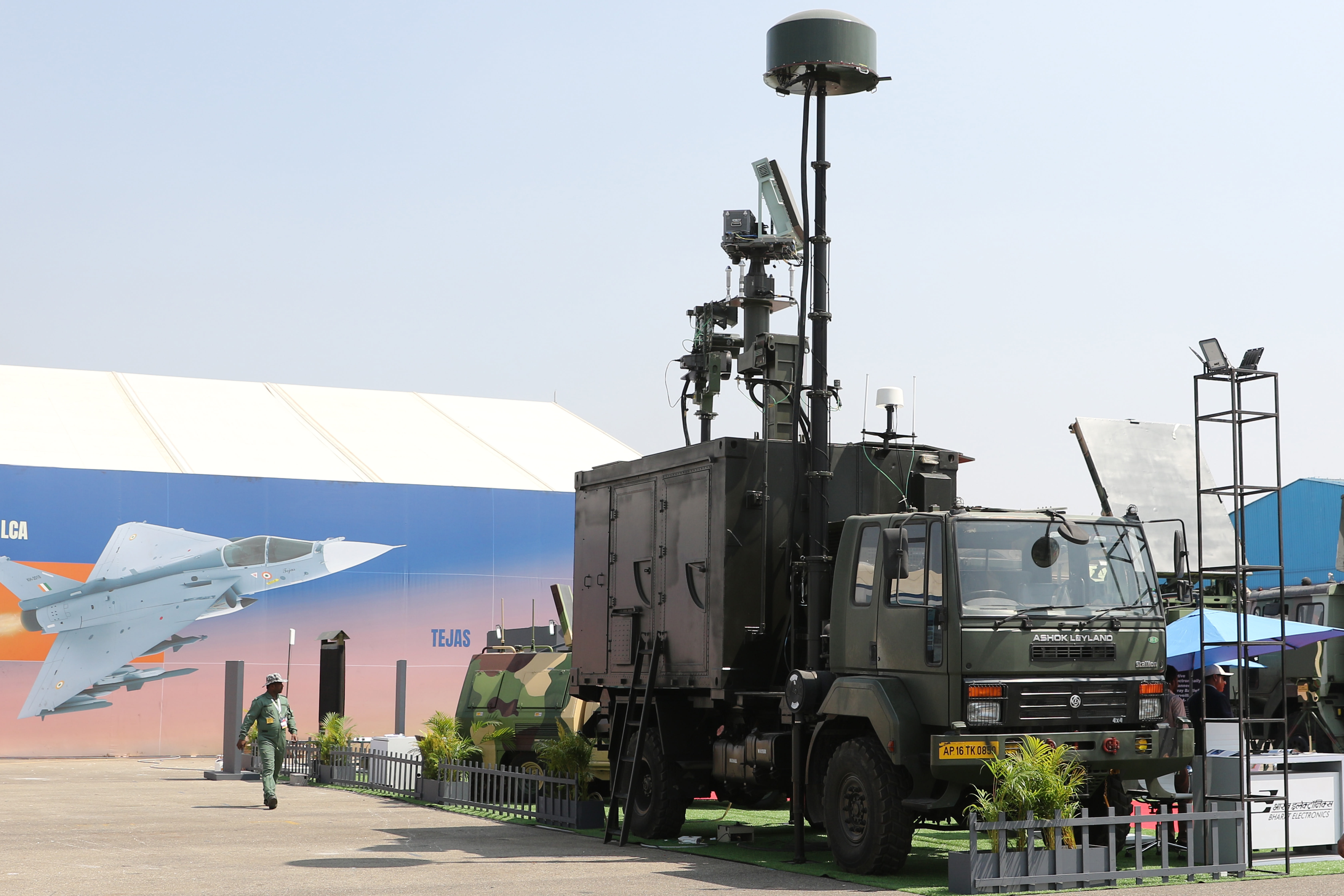India's Strategic Military Investments: A New Era in Defense
 The Tech Times
The Tech Times
In a move that signals a significant shift in its defense strategy, India has announced the acquisition of advanced drones and air defense weapons. This comes in the wake of recent aerial clashes with Pakistan, underscoring the urgency and necessity of bolstering national security. Prime Minister Narendra Modi has articulated this shift under the banner of "Operation Sindoor," which he states is now a cornerstone of India's fight against terrorism.
India's decision to invest heavily in these technological advancements highlights a broader trend in global defense strategy, where nations are increasingly relying on unmanned systems and sophisticated air defense mechanisms to maintain strategic superiority. This shift not only represents a tactical response to immediate threats but also a long-term strategic vision aimed at positioning India as a formidable defense power in the region.
Historical Context
The Indo-Pakistani conflict has a long and complex history, marked by a series of wars, skirmishes, and diplomatic tensions since the partition in 1947. However, the nature of warfare has evolved dramatically over the decades. The Kargil War of 1999 was one of the last major conventional military engagements between the two nations, but even then, the seeds of change were evident. Asymmetric warfare, including terrorism and insurgency, began to dominate the landscape, necessitating a new approach in military strategy.
The current geopolitical climate has further accelerated this evolution. The introduction of advanced technology in warfare, such as drones and missile defense systems, is reshaping the battlefield. For India, the need to modernize its military capabilities has been underscored by the increasing sophistication of threats, both from state and non-state actors. The recent skirmishes with Pakistan have merely reinforced the urgency of this transformation.
The Role of Technology in Modern Warfare
Drones, or Unmanned Aerial Vehicles (UAVs), have become critical assets in modern military operations. They offer a range of capabilities, from surveillance and intelligence gathering to precision strikes, all while minimizing the risk to human life. In the context of India's defense strategy, drones provide a versatile tool for monitoring border areas and responding swiftly to threats.
Similarly, advanced air defense systems are crucial in protecting the nation's airspace from enemy aircraft and missiles. These systems are designed to detect, track, and neutralize incoming threats, thus enhancing the country's defensive posture. By investing in such technology, India is not only safeguarding its territorial integrity but also sending a clear message of deterrence to potential adversaries.
Strategic Implications
India's military modernization efforts are part of a broader geopolitical strategy. As a rising power in the Asia-Pacific region, India is keen to assert its influence and protect its interests amidst a backdrop of regional tensions and power shifts. The procurement of advanced drones and air defense systems is a testament to this strategic intent.
Furthermore, these investments align with India's broader defense diplomacy. By showcasing its technological capabilities, India can strengthen its position in international defense collaborations and partnerships. This is particularly relevant in the context of its relationships with key allies like the United States and Israel, who are leaders in defense technology.
Conclusion
India's recent military acquisitions mark a pivotal moment in its defense strategy. By embracing advanced technology and focusing on modern warfare capabilities, the nation is not only addressing current security challenges but also preparing for future uncertainties. As "Operation Sindoor" becomes a defining element of India's counter-terrorism policy, it reflects a commitment to both national security and regional stability.
As we move forward, it will be crucial to observe how these strategic investments are operationalized and their impact on the broader Indo-Pakistani dynamic. One thing is certain: in the realm of defense, technology will continue to play a transformative role, reshaping not only the capabilities of individual nations but also the contours of global power structures.
Source: India buys drones, air defense weapons following aerial Pakistan fight
Subscribe to my newsletter
Read articles from The Tech Times directly inside your inbox. Subscribe to the newsletter, and don't miss out.
Written by
